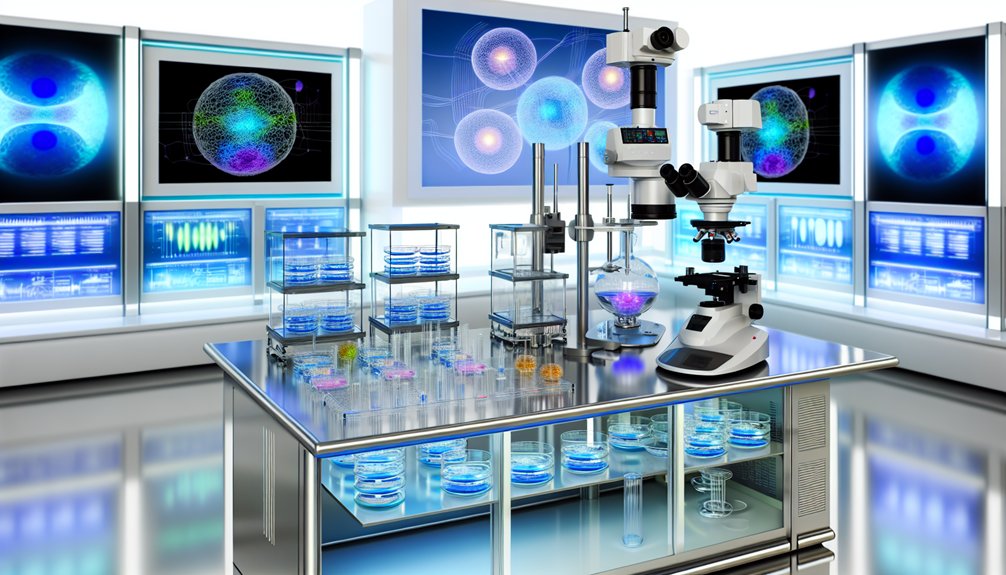Recent advances in Type 1 Diabetes (T1D) research bring hope to millions. AI tools can now spot early signs, giving families a chance to manage their fears and take proactive steps. Innovative therapies, like stem cell treatments, show promising results, making insulin independence a reality for some. Personalized management solutions also help individuals navigate their daily challenges with greater ease. It’s an exciting time in T1D research, as these breakthroughs can truly change lives—more amazing discoveries lie just ahead.

As researchers explore deeper into the complexities of type 1 diabetes (T1D), hope shines brighter than ever for those affected by this challenging condition. New technologies, especially artificial intelligence (AI), are emerging as powerful allies in the early detection and management of T1D.
Imagine a world where AI tools can spot the first signs of T1D up to a year before clinical symptoms appear. This advancement could potentially prevent severe complications like diabetic ketoacidosis (DKA), which is a frightening experience for many families. Studies indicate that AI tools outperform current detection methods, enhancing the potential for timely intervention.
AI tools may identify early signs of type 1 diabetes a year in advance, preventing frightening complications like diabetic ketoacidosis.
AI isn’t just about early detection; it also offers personalized solutions. For example, GlyTwin technology provides tailored insulin and dietary advice, helping to avoid those frustrating blood sugar spikes. Many have found this approach enhances their safety and makes diabetes management feel less overwhelming. Furthermore, ongoing research explores immunotherapy and regenerative medicine to preserve or restore beta cell function, which could significantly improve treatment options.
In addition to AI, research into stem cell therapy and islet cell transplantation brings another wave of optimism. Adult mesenchymal stem cells (MSCs) can transform into insulin-producing beta cells. This capability, combined with their unique properties that protect against autoimmune attacks, could change the lives of many. Innovative treatments like VX-880 therapy have shown promising results in clinical trials, potentially reducing or eliminating the need for insulin injections.
Clinical trials show promising results, with some patients experiencing improved glycemic control and reduced insulin dependence. In a remarkable case from Beijing, a patient was reportedly cured from T1D after receiving induced pluripotent stem cells (iPSCs) derived islet cell transplants, achieving insulin independence for over a year.
The International Diabetes Federation highlights that there are about 9 million T1D cases worldwide, which has sparked interest in expanding research. A focus on genetics and immune biomarkers may lead to earlier identification of at-risk individuals.
Also, innovative therapies, like immunoglobulin M (IgM) supplementation, are showing potential in reversing new-onset diabetes in animal models.
As these advances unfold, they bring with them a renewed sense of hope. With each breakthrough, the journey toward a brighter future for those living with T1D becomes more tangible.
